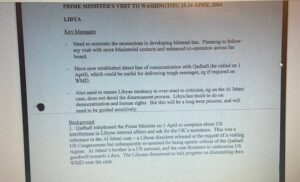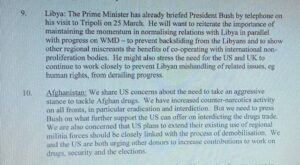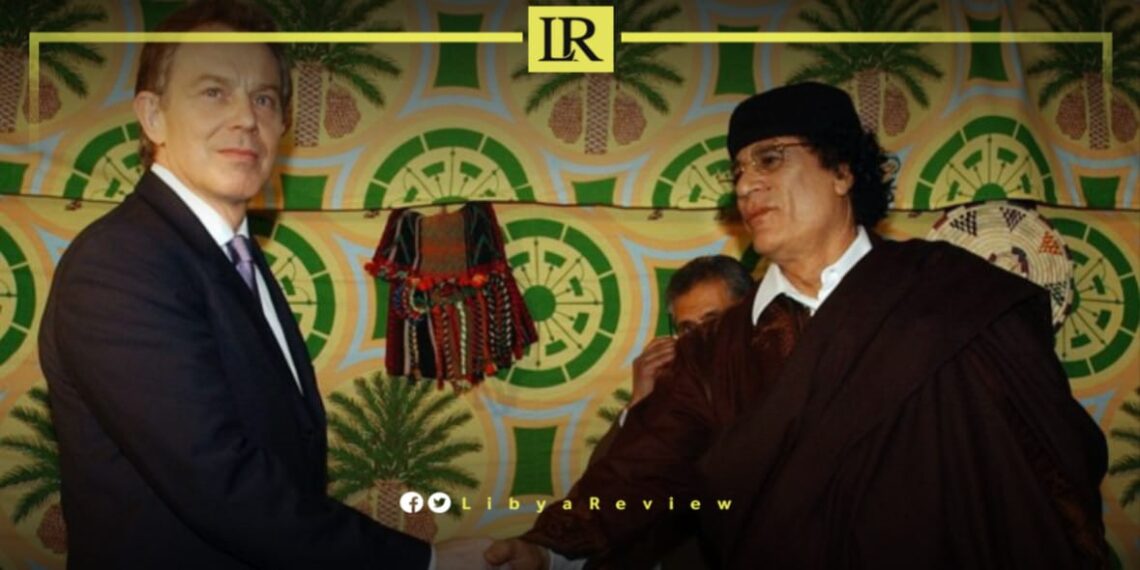Newly released British government documents have revealed that Muammar Gaddafi’s regime offered to dismantle its weapons of mass destruction (WMD) programmes in an attempt to ease international pressure over Libya’s human rights record.
The documents, released by the British National Archives, show that around 20 years ago, the UK government worked to convince the US that improving relations with Gaddafi could help persuade other Middle Eastern regimes to abandon their WMD ambitions.
In 2003, Gaddafi surprised the world by renouncing Libya’s WMD programmes and agreeing to allow international inspectors into the country. Western leaders, including UK Prime Minister Tony Blair, praised this decision as a diplomatic success.
Blair, who had sought to normalise relations with Gaddafi since the 9/11 attacks, visited Libya in March 2004, becoming the first British leader to do so since Gaddafi came to power.
Blair hailed the visit as a sign of “remarkable progress.” However, shortly after, the US pressured Libya to address its human rights issues, particularly regarding the detention of activist Fathi Al-Jahmi.
Al-Jahmi, who was imprisoned after criticising Gaddafi’s regime, was released in March 2004 following a US intervention, but was later detained again. He died in 2009. The documents reveal that Blair’s advisers were concerned that human rights issues could derail progress on WMD disarmament and warned of the potential consequences for US-Libya relations.
Blair’s team also pushed the US to continue supporting Libya’s disarmament, while recognising that political reforms and human rights improvements would take time. The documents further suggest that Blair used his relationship with Gaddafi to lobby for arms deals with British defence contractor BAE Systems.
These revelations come amid renewed criticism of Blair’s dealings with authoritarian regimes, particularly following the 2011 Arab uprisings.




